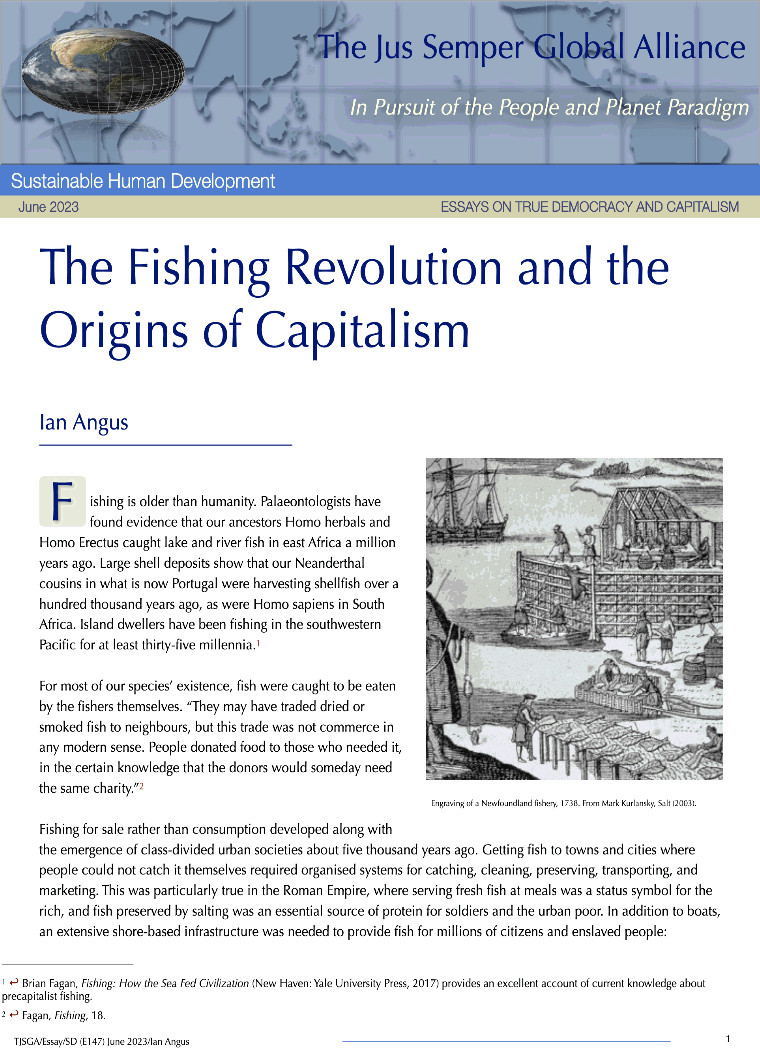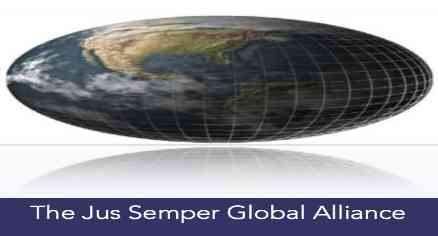For most of our species’ existence, fish were caught to be eaten by the fishers themselves. “They may have traded dried or smoked fish to neighbours, but this trade was not commerce in any modern sense. People donated food to those who needed it, in the certain knowledge that the donors would someday need the same charity Fishing for sale rather than consumption developed along with the emergence of class-divided urban societies about five thousand years ago. Getting fish to towns and cities where people could not catch it themselves required organised systems for catching, cleaning, preserving, transporting, and marketing. This was particularly true in the Roman Empire, where serving fresh fish at meals was a status symbol for the rich, and fish preserved by salting was an essential source of protein for soldiers and the urban poor. In addition to boats, an extensive shore-based infrastructure was needed to provide fish for millions of citizens and enslaved people. By 1600, shipbuilding was concentrated in a few large operations, and “the industry shifted from a medieval handicraft to something along the lines of modern factory organisation.” Workers were paid daily wages at rates negotiated with local guilds, and were required to work fixed hours. While Spanish ships carried silver and gold, a parallel trade involving far more ships and people developed far to the north. Historians of capitalism, including Marxists, have paid too little attention to what Francis Bacon called “the Gold Mines of the Newfoundland Fishery, of which there is none so rich.” Even if one accepts Parkhurst’s simplistic figures, the Newfoundland fleet—comprising between 350 and 380 vessels crewed by 8,000-10,000 men—could have more than matched Spain’s transatlantic commerce with the Americas, which relied on 100 ships at most and 4,000-5,000 men in the 1570s—its best years in the sixteenth century.… However approximate, these figures demonstrate that the Gulf of St. Lawrence was a pole of attraction for Europeans on a par with the Gulf of Mexico and the Caribbean. Far from being a fringe area worked by only a few fishermen, the northern part of the Americas was one of the great seafaring routes and one of the most profitable European business destinations in the New World. Historians “have grossly underestimated the historical economic significance of the fish trade, which may have been equal to the much more famed rush to exploit the silver mines of the Incas.” The Fish Revolution was “a major event in the history of resource extraction and consumption…[which] permanently changed human and animal life in the North Atlantic region.” He adds that “the wider seafood market was transformed in the process, and the marine expansion of humans across the North Atlantic was conditioned by significant climatic and environmental parameters. The Fish Revolution is one of the clearest early examples of how humans can affect marine life on our planet and of how marine life can in return influence and become, in essence, a part of a globalising human world.” I hope that this article contributes to a more rounded picture, and shows that no account of capitalism’s origins is complete if it omits the development and growth of intensive fishing in the centuries when capitalism was born. For a full read of this essay, click here or on the picture to download the pdf file.
|

- © The Jus Semper Global Alliance
| Home |  | Resources |  | Economic Data |  | The Fishing Revolution and the Origins of Capitalism |


